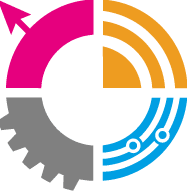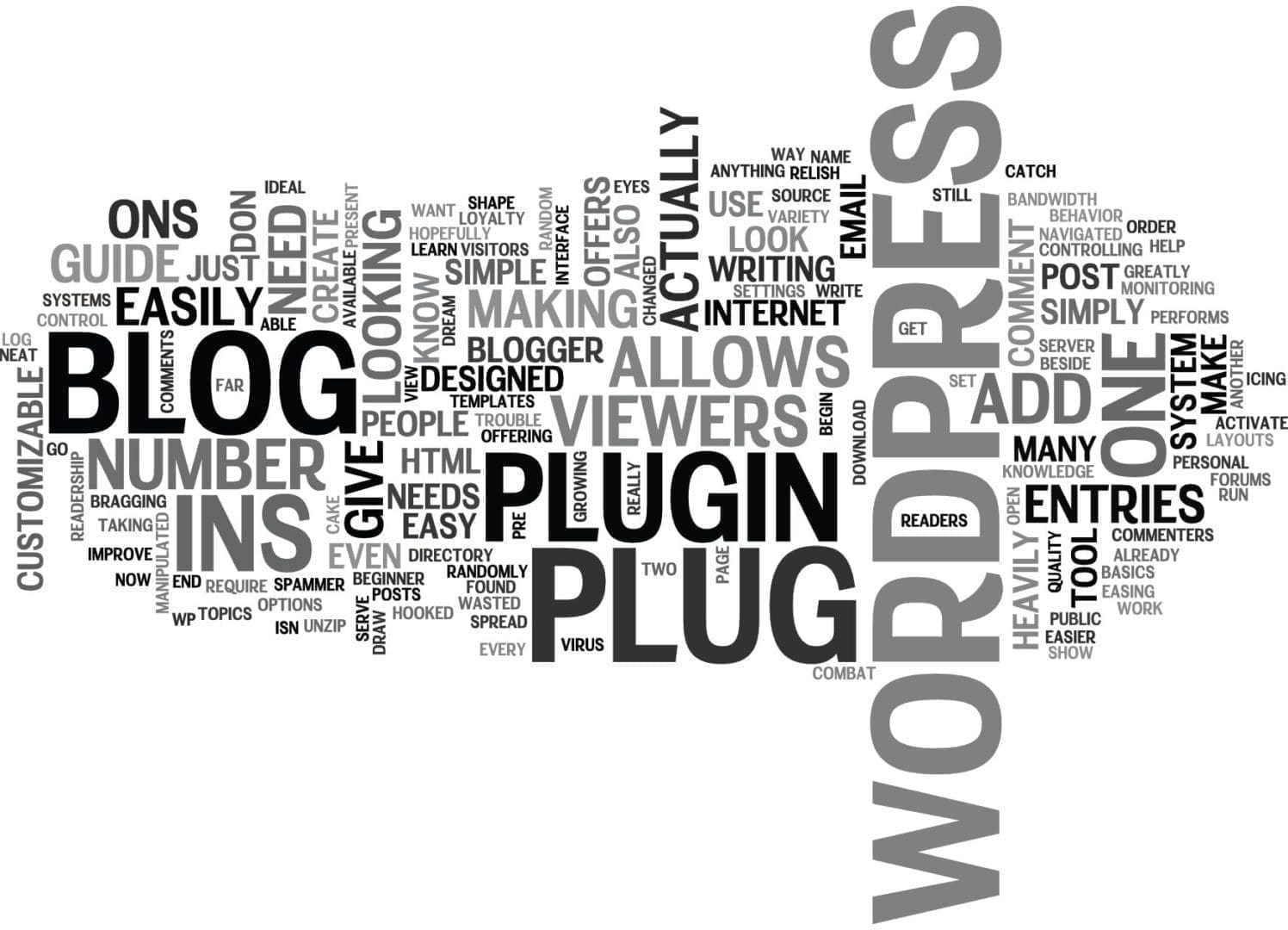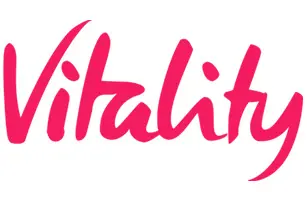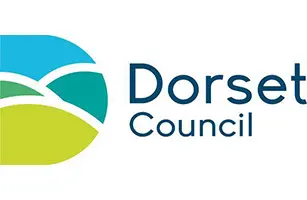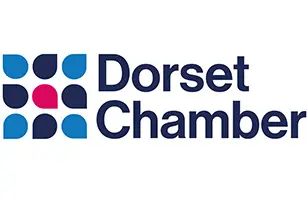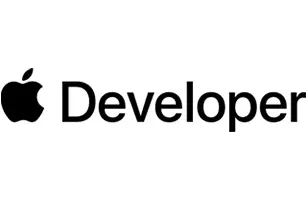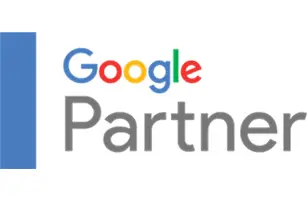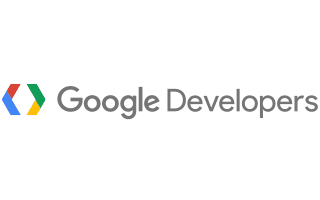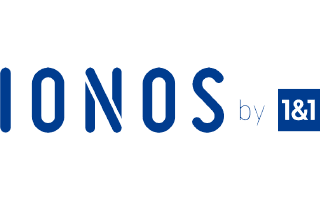
Definitive Guide: How Much Does a Website Cost in the UK in 2024
In today’s digital age, having a website is a must for any business, regardless of its size or industry. A website can help you reach a wider audience, establish your brand, and increase your sales and revenue. However, before you can reap the benefits of having a website, you need to invest time and money in its development.
The question that many business owners ask is, “How much does a website cost?” The answer is not as straightforward as you might think. The cost of a website can vary greatly depending on several factors, including the type of website, the features and functionality you want, and the web design agency you choose to work with.
As an agency owner, I get this question several times a week and so rather than giving my same 4 line answer, I thought it would be “fun” to detail exactly why it’s a “how long’s a piece of string” question.
In this article, we will discuss the different factors that can affect the cost of a website, so you can make an informed decision about your website development project.
Type of Website
One of the biggest factors that can affect the cost of a website is the type of website you want. There are several types of websites, including:
Static Website: A static website is a basic website that consists of HTML pages and doesn’t have any dynamic content. This type of website is suitable for businesses that don’t require frequent updates or complex functionality. The cost of a static website can typically range from £300 to £3,500, depending on the number of pages and the complexity of the design.
Site-builder Website: A website built with a drag-and-drop tool. This dramatically reduces the cost of development as it can be built by someone that has no development experience. The site can be updated easily, but it’s worth noting that typically sites built in this manner are terrible for search engines. This type of site also has the lowest barrier to entry too; someone with no experience can set themselves up as a “Web Agency” and begin offering websites to small businesses.
Dynamic Website: A dynamic website is a website that has dynamic content and can be updated frequently. It will normally have a “Content Management System” or “CMS”. This type of website is suitable for businesses that require complex functionality, such as e-commerce or social networking. The cost of a dynamic website will normally range from £650 all the way up to around £30,000, depending on the complexity of the functionality.
E-commerce Website: An e-commerce website is a website that allows businesses to sell products or services online. This type of website requires a lot of functionality, including a shopping cart, payment gateway integration, and inventory management. The cost of an e-commerce website can range from £1,000 to £60,000, depending on the number of products and the complexity of the functionality.
Note: In all of the above there are huge sub-varients. For instance, you can have an E-commerce website built on a Site-builder platform. At the other end of the spectrum, we frequently build “multi-vendor” websites. These multi-vendor websites allow site visitors to list their own products and promote their own business to your visitors.
Chris’s note: At the lowest end of all of these you’ll have single freelancers or people just doing it as a hobby. Most agencies will have a minimum project size of £3,000 regardless of what work is needed. Even with our approach, we still have a minimum (typically around £850) as it’s a false economy to build a site that won’t get results, so it’s important to have minimum standards you stick to.
Amount of Design Required
The design aspect of a website can play a significant role in the overall cost of building a website. There are several factors that can influence the cost of design, such as the number of mock-ups required, the complexity of the designs, and whether or not any illustrations are needed.
Mock-ups are essential for website design, as they allow the client to visualize what the website will look like before it is built. The number of mock-ups required will depend on the complexity of the website, as well as the client’s preferences. Generally, the more mock-ups required, the higher the cost. This is because creating mock-ups is a time-consuming process that requires a lot of design skill and attention to detail.
The complexity of the design is another factor that can impact the cost of building a website. A simple, clean design will be less expensive than a more complex design that requires more time and skill to create. A complex design may include elements such as custom graphics, animations, or interactive features. These types of designs require more time and effort to create, and therefore, will increase the cost of building the website.
Illustrations are another design element that can affect the cost of building a website. Illustrations are a great way to add visual interest and personality to a website, but they can also be time-consuming to create. Depending on the number and complexity of the illustrations required, the cost of building the website can increase significantly.
When it comes to design, it’s important to strike a balance between aesthetics and functionality. While a visually stunning website can be impressive, it’s important not to sacrifice usability and accessibility for design. This is because a website’s primary goal is to provide information and functionality to its users, and if the design gets in the way of that, the website will not be successful.
In addition to the factors mentioned above, it’s also important to consider the expertise and experience of the designer. A more experienced designer will be able to create high-quality designs more efficiently, which can save time and money. However, their higher skill level may also come with a higher price tag.
Chris’s Note: There’s such a variance just in this one point alone. Mock-ups represent just 1 line in our budget plans, but shape the entire rest of the project budget plan. Being so experienced, we only really need 1 mock-up per site as we’re very comfortable “designing in browser”. This saves a huge amount of time/money and can shave 1-2 weeks off the project build time. Even that 1 mock-up could be 4.5 hours or could be 30 hours depending on the complexity and how much creativity is needed. Often we’ll have one of our Illustrators create custom design elements too. For high budget sites we’ll often be asked to mock-up every major page, in both desktop and mobile sizes too. This is rather extreme and is almost entirely for the customer’s benefit, so we recommend against it.
Level of customer service required
The level of customer service required can also affect the cost of building a website. This is because providing a high level of customer service requires time and resources, which can add to the overall cost of the project.
One aspect of customer service that can impact the cost of building a website is the need for reports. Reports can provide valuable insights into how the website is performing, such as traffic statistics, user behavior, and conversion rates. However, generating reports can be time-consuming, particularly if they need to be customized to meet the client’s specific needs. Depending on the level of detail required, generating reports may require additional software, which can also add to the cost.
Another aspect of customer service that can impact the cost of building a website is the need for calls and meetings. While regular communication is essential for ensuring that the website meets the client’s needs, calls and meetings can also be time-consuming. Depending on the frequency and duration of the calls and meetings required, they can add significant costs to the project.
It’s worth noting that the level of customer service required can vary depending on the client’s preferences and the complexity of the website. Some clients may require frequent communication and detailed reports, while others may be more hands-off and require less support. As such, it’s important to establish clear expectations around customer service from the outset of the project.
To manage costs associated with customer service, some web development companies may offer different levels of support. For example, they may offer a basic level of support that includes regular updates and email communication, while a higher level of support may include more frequent calls and meetings, detailed reports, and customized training.
Chris’s Note: Sometimes it is hard to predict how much support a customer will need during a project, but we like to allocate some time to it in the budget so it’s clear to both parties at what level we see this one. We’re quite a “no thrills” agency as don’t charge an additional mark-up, we just charge for the time used, so you’d literally be paying us to produce that report that you’ll file in the bin the next day. Customers often request calls direct with our developers and we try to accomidate, but strongly recommend against and in some cases have protection against. Our developers all have their own specialisms and some have trained daily for over half their lives on how to be the best developer possible. They’re not trained in customer service and in many cases will have social anxiety. We try to let them focus on doing what they’re good at. Anything that you feel would be better to explain with your voice than in writing is said to the project manager, or the group consultant, who can then type it out for you into clear tasks. I’ve seen the difference between a £4,000 website and a £6,000 website just be the amount of meetings before!
Features and Functionality
The features and functionality you want on your website can also affect its cost. Here are some of the most common features and functionality that can add to the cost of a website:
Content Management System (CMS): A CMS allows you to manage the content on your website without the need for technical knowledge. The most popular CMS is WordPress, which is free and open-source. However, customizing WordPress can be expensive, and you may need to hire a developer to do it for you. The cost of the CMS itself can range from £100 to £3,500, depending on the level of customization required.
Responsive Design: A responsive design ensures that your website looks good on all devices, including desktops, laptops, tablets, and smartphones. This is important because more and more people are accessing the internet on mobile devices. NB: In my opinion, every site should be responsive so I won’t include a guide cost for this.
Custom Functionality: Custom functionality refers to any functionality that is unique to your website and not available in off-the-shelf solutions. This can include custom forms, calculators, and other interactive elements. The cost of custom functionality can range from £250 to £50,000.
Chris’s Note: Even the functionality itself can range. I’ve seen an agency custom build a feature on a site, charging the customer thousands when they literally could have installed a free plugin to get the same result. Not all developers will take the same approach. Likewise, a developer might see hurdles in the future and custom build a feature when a designer/admin level builder would install the free plugin without even being aware.
Amount of and type of testing in the budget
The amount of testing required can also impact the cost of building a website. Testing is essential to ensure that the website is functioning properly, is user-friendly, and meets the client’s needs. However, the amount of testing required can vary depending on the complexity of the website, and the level of functionality required.
There are several types of testing that may be required during the web development process. These include:
Functional Testing: This involves testing the basic functionality of the website, such as links, forms, and navigation. Functional testing is essential to ensure that the website is working as intended.
Compatibility Testing: This involves testing the website on different devices and browsers to ensure that it is compatible with a range of platforms. Compatibility testing can be time-consuming, particularly if the website has complex functionality or requires customization for different devices.
Performance Testing: This involves testing the website’s performance under different conditions, such as heavy traffic or high server load. Performance testing is essential to ensure that the website can handle a large volume of users without crashing or slowing down.
Usability Testing: This involves testing the website’s user interface and user experience to ensure that it is intuitive and easy to use. Usability testing may involve user surveys, focus groups, or other methods to gather feedback from users.
The amount of testing required will depend on the complexity of the website, and the level of functionality required. For example, a simple brochure website may require less testing than a complex e-commerce website with custom functionality. Additionally, the level of testing required may depend on the client’s preferences and requirements.
The cost of testing can vary depending on the type and amount of testing required. For example, compatibility testing may be more time-consuming and expensive than functional testing.
Chris’s Note: This is a huge factor in the cost. Our household name clients have a lot of time in the budget for testing on physical devices, on emulators and automated testing. However, the majority of our customers will do most of the testing themselves. This dramatically lowers the cost of the project and gets the customer more in-tune with the website. They’ll often notice content they want to re-write or features they want to reqork because of it.
Custom themes vs Off-the-shelf
One of the biggest factors affecting the cost of building a WordPress website is the choice of theme. A theme is essentially the design and layout of the website, and can either be custom-built specifically for the website or purchased as an off-the-shelf theme.
Off-the-shelf themes are pre-designed templates that can be purchased and used for a wide range of websites. They typically come with a range of pre-built layouts, features, and functionalities, and can be customized to fit the specific needs of the website. Off-the-shelf themes are generally less expensive than custom-built themes, as they are created for mass-market appeal and can be sold to multiple customers.
In contrast, custom-built themes are designed specifically for the website and are tailored to the client’s unique needs and preferences. This involves creating a design from scratch, which can be a time-consuming and costly process. However, the advantage of a custom-built theme is that it provides a completely unique look and feel for the website, which can be important for branding and standing out in a crowded marketplace.
When it comes to the cost of building a WordPress website, the choice between an off-the-shelf theme and a custom-built theme can have a significant impact. Off-the-shelf themes are generally less expensive, as they require less time and effort to create. They are also easier to set up and use, as most of the design and functionality is already built in.
In contrast, custom-built themes are generally more expensive, as they require more time and effort to create. This is because the design process involves more consultation with the client to ensure that the design matches their specific needs and preferences. Additionally, custom-built themes may require more testing and optimization to ensure that they work seamlessly with the website’s content and functionality.
Overall, the choice between an off-the-shelf theme and a custom-built theme will depend on the specific needs and preferences of the client. Off-the-shelf themes are a good option for those who are looking for a cost-effective solution that still provides a high-quality design and functionality. Custom-built themes, on the other hand, are a good option for those who are looking for a unique and highly customized design that will stand out from the crowd.
Chris’s notes: As a creative, we love nothing more to completely build the site from scratch, but particularly in today’s climate, people often don’t have the budget for this. Using a theme can literally save 500 hours in a budget. Our approach is to vary the amount of theme code we use based on the clients budget. So rather than us giving you a quote, we ask what your budget is and then tailor our approach to that. In general an off-the-shelf theme can allow projects as small as £500. A custom theme will typically start at £2,000+.
Amount of Search Engine Optimisation
Search engine optimization (SEO) is the process of optimizing a website to improve its ranking and visibility on search engines like Google. SEO is an important consideration when building a website, as it can help to drive traffic and increase visibility for the website’s target audience. However, the amount of SEO work required for a website can vary greatly depending on the client’s goals and needs, which can impact the cost of building the website.
The amount of SEO work required for a website can depend on a range of factors, including the industry, competition, and target audience. Websites in highly competitive industries or with a broad target audience may require more extensive SEO work to rank highly on search engines. In contrast, websites in less competitive industries or with a smaller target audience may require less SEO work.
When it comes to the cost of building a website, the amount of SEO work included in the budget can have a significant impact. More extensive SEO work, such as keyword research, content optimization, and link building, can be time-consuming and require a high level of expertise. This can increase the overall cost of building the website, as the development team may need to spend more time and resources on SEO-related tasks.
In contrast, less extensive SEO work, such as basic on-page optimization, may be included in the standard website development package and may not significantly impact the cost of the website. However, it’s important to note that less extensive SEO work may not provide the same level of visibility and traffic as more extensive SEO work, which can impact the website’s overall success.
Note from Chris: As an agency, we actually have a minimum amount of SEO we will let a site go out the door with despite the budget. It’s pointless having a great looking site if no one finds it. Site builder sites tend to be limited when it comes to SEO, so those ones will have less in the budget than a custom site would. SEO is always an ongoing process and I would recommend having a monthly budget just for that, but the initial SEO budget could be as little as £60 or as much as £3,000. We recently inherited a customer that had spent £24,000 on SEO over 18 months and in my opinion had barely even started their SEO.
Budget for amends
When it comes to building a website, one important consideration is the amount of time and budget allocated for amends or changes to the website during and after its development. The amount of budget required for amends can vary greatly depending on the client’s needs and preferences, as well as the complexity of the website.
Firstly, clients who have a clear vision of what they want their website to look like and have a well-defined set of requirements may require less budget for amends. This is because their requirements are already clear, and there is less need for the development team to make significant changes to the website. On the other hand, clients who have a more general idea of what they want or who are open to suggestions from the development team may require more budget for amends, as the development team may need to spend more time iterating and refining the website to meet the client’s expectations.
Secondly, the complexity of the website can also impact the amount of budget required for amends. Websites that are more complex, with more features, functionalities, and integrations, will generally require more budget for amends. This is because any changes made to one feature or functionality may have ripple effects throughout the website, requiring more time and effort to ensure that everything still works as intended. In contrast, simpler websites with fewer features may require less budget for amends as there are fewer interdependencies between different parts of the website.
Finally, the timeline for the website development can also impact the amount of budget required for amends. If a client has a tight deadline for the website, the development team may need to work more quickly, which can increase the likelihood of errors or oversights. This may result in more time and budget required for amends later on. In contrast, if the development team has a more flexible timeline, they may be able to take more time to iterate and refine the website, resulting in fewer amends needed later on.
Chris’s note: I’ll often get a vibe from the customer upfront, or early on in the process so can guide them as to how much of a budget they’ll need for amends. It can be hard to predict, so we like to include some buffer for amends in all estimates and then once the design is signed off we can often re-allocate that or reduce the budget.
Web Design Agency
The web design agency you choose to work with can also have a significant impact on the cost of your website. Different agencies have different pricing models, and their rates can vary based on their location, experience, and portfolio. Here are some of the factors that can affect the cost of a web design agency:
- Location: The cost of web design services can vary depending on the location of the agency. For example, web design agencies in cities like London and Southampton are likely to charge more than agencies in smaller cities or towns. The national
- Experience: Experienced web design agencies with a strong portfolio are likely to charge more than newer agencies or freelancers. This is because they have a proven track record of delivering high-quality work.
- Portfolio: The portfolio of a web design agency can also affect its pricing. Agencies with a strong portfolio of high-profile clients are likely to charge more than agencies with a smaller portfolio or no portfolio at all.
- Reputation: The reputation of a web design agency can also affect its pricing. Agencies with a good reputation and positive reviews from previous clients are likely to charge more than agencies with a poor reputation.
- Ethos: Our case is rather unique. We have a great reputation, we regularly work with household name brands and we’ve an average of 13 years experience, but the lowest fees around. This is due to our plan to make custom development affordable to all.
Note from Chris: We are the prime example of this! We do a lot of “white label” work for other agencies. In fact, we are the development department for several Poole, Bournemouth and London agencies. The same team that do work for our charity clients at £25/hour are being charge to those agencies’ customer
Web Hosting and Domain Name
Web hosting and domain name registration are two other factors that can affect the cost of a website. Web hosting is the service that allows your website to be accessible on the internet, while a domain name is the address that people use to access your website. Here are some of the factors that can affect the cost of web hosting and domain name registration:
- Type of Hosting: There are several types of web hosting, including shared hosting, VPS hosting, and dedicated hosting. Shared hosting is the most affordable option, while dedicated hosting is the most expensive. The cost of web hosting can range from £2 to £200 per month, depending on the type of hosting and the features included.
- Domain Name: The cost of a domain name can vary depending on the domain extension (such as .com, .org, .net), the length of the domain name, and whether it is a premium domain. The cost of a domain name will typically range from £10 to £60 per year, but I’ve seen premium domains sell for £6,000.
Note from Chris: We never recommend shared hosting. They’re cheap, but unreliable when it comes to speed and have various negative impacts on SEO. I would start at a VPS or Cloud hosting and scale that up. For business critical sites, resource intensive ones or multi-vendor sites, I like to recommend a dedicated server. A good spec one starts at £60/m and our average is around £100/m.
Maintenance and Updates
Once your website is live, you will need to maintain and update it regularly to ensure that it remains secure, functional, and up-to-date. This can include updating plugins and themes, fixing bugs and errors, and adding new content. Here are some of the factors that can affect the cost of website maintenance and updates:
- Frequency of Updates: The frequency of updates required can vary depending on the complexity of your website and the level of functionality it offers. Websites that require frequent updates are likely to incur higher maintenance costs than websites that require less frequent updates.
- Size of the Website: The size of your website can also affect the cost of maintenance and updates. Larger websites with more pages and functionality are likely to incur higher maintenance costs than smaller websites.
- Support Services: Some web design agencies offer ongoing support services, such as phone and email support, to help you maintain and update your website. These services can add to the overall cost of your website. Worth noting that some smaller agencies or “one-man-bands” will build the site for you and then you’re on your own. Typically support retainers are around £250-350/m but there are plenty of companies out there well under that.
Chris Note: We’re unusual in that we will happily support sites built by other agencies and don’t charge a monthly support retainer. We just charge you for the exact minutes used.
Summary
Now that you understand the factors that can impact the cost of a website and the range of services that we offer at Dorset Tech, let’s dive deeper into the pricing of web design services.
The cost of web design services can vary widely depending on the type of website you need and the level of customization and functionality required. In general, a simple brochure website with a few pages and basic functionality will be less expensive than a complex e-commerce website with dozens of pages, advanced features, and custom functionality.
Here are some general price ranges for different types of websites:
Wix site built by a hobbyist: £350
Basic brochure website built by a freelancer or micro agency: £500 – £2,500
Basic brochure website built by an agency: £3,000 – £5,500
Small business website: £1,200 – £6,000
E-commerce website: £1,200 – £25,000
Custom website: £1,200 – £50,000+
Of course, these are just general estimates, and the actual cost of your website will depend on a variety of factors, including the complexity of the design, the number of pages and features required, and the level of customization and functionality.
It is also important to note that the cost of web design services is not just a one-time fee. There are ongoing costs associated with website maintenance, updates, and hosting that should be factored into your budget.
Chris Note: We have a discounted rate for start-up businesses and a promotional rate for charities, so we’re at the lower price range. However, due to our experience level we tend to get high budget sites too (£20k is not unheard of and our record is £68,000) – it just means they get more for the money. Our average is artifcially lowered by our charity customers at around £2,200 for a standard website and £2,800 for an ecommerce website. Our lowest price for these has been around £450 for a basic website and around £650 for an e-commerce site.
Conclusion
In summary, the cost of a website can vary greatly depending on several factors, including the type of website, features and functionality, web design agency, web hosting and domain name, and maintenance and updates. To get an accurate estimate of the cost of your website, it is important to consider all of these factors and work with a reputable web design agency that can provide you with a detailed quote.
At Dorset Tech, we offer affordable and high-quality web design services for businesses of all sizes. Our team of experienced designers and developers will work closely with you to understand your needs and create a website that reflects your brand and meets your goals.
We understand that every business is unique, and we offer customized solutions that are tailored to your specific needs and budget. Our pricing is transparent and competitive, and we will provide you with a detailed quote upfront so you know exactly what to expect.
In addition to web design, we also offer a range of other services to help you build and grow your online presence, including search engine optimization, social media marketing, and e-commerce solutions. We can help you create a comprehensive online strategy that will drive traffic to your website and help you achieve your business goals.
When it comes to web design, we specialize in WordPress, which is a popular content management system that powers over 40% of all websites on the internet. WordPress is easy to use, flexible, and highly customizable, making it a great choice for businesses of all sizes and industries.
With WordPress, you can easily add new pages and content to your website, customize the design and layout, and add new features and functionality with the use of plugins. WordPress also offers a range of built-in SEO features, making it easy to optimize your website for search engines and drive traffic to your site.
At Dorset Tech, we have years of experience working with WordPress, and we can help you create a website that is both beautiful and functional. We will work with you to understand your needs and create a custom design that reflects your brand and meets your goals. We will also provide ongoing support and maintenance to ensure that your website remains secure and up-to-date.
In conclusion, the cost of a website can vary greatly depending on several factors, including the type of website, features and functionality, web design agency, web hosting and domain name, and maintenance and updates. It is important to consider all of these factors when planning your website and to work with a reputable web design agency that can provide you with a detailed quote upfront.
At Dorset Tech, we offer affordable and high-quality web design services for businesses of all sizes, and we specialize in WordPress. We can help you create a website that is both beautiful and functional, and that will help you achieve your business goals. Contact us today to learn more about our services and to get started on your website project.
In addition to web design, we also offer other services that can help you improve your online presence and drive traffic to your website. Search engine optimization (SEO) is one such service, and it involves optimizing your website for search engines like Google so that your website appears higher in search engine rankings. This can increase your visibility and drive more traffic to your site, ultimately helping you achieve your business goals.
We also offer social media marketing services, which can help you reach a wider audience and engage with your customers on popular social media platforms like Facebook, Instagram, and Twitter. By creating targeted campaigns and posting engaging content, you can build a strong online presence and connect with your customers in meaningful ways.
Another service we offer is e-commerce solutions, which can help you sell your products or services online. We can create an online store for you that is easy to use and optimized for conversions, allowing you to reach more customers and increase your revenue.
When it comes to pricing, we offer transparent and competitive pricing for all of our services. We understand that every business is unique, and we will work with you to create a customized solution that meets your needs and budget.
At Dorset Tech, we are committed to providing high-quality web design and digital marketing services to businesses of all sizes in Dorset and beyond. Our team of experienced professionals has the skills and expertise to help you achieve your business goals and grow your online presence. Contact us today to learn more about our services and to get started on your website project.

